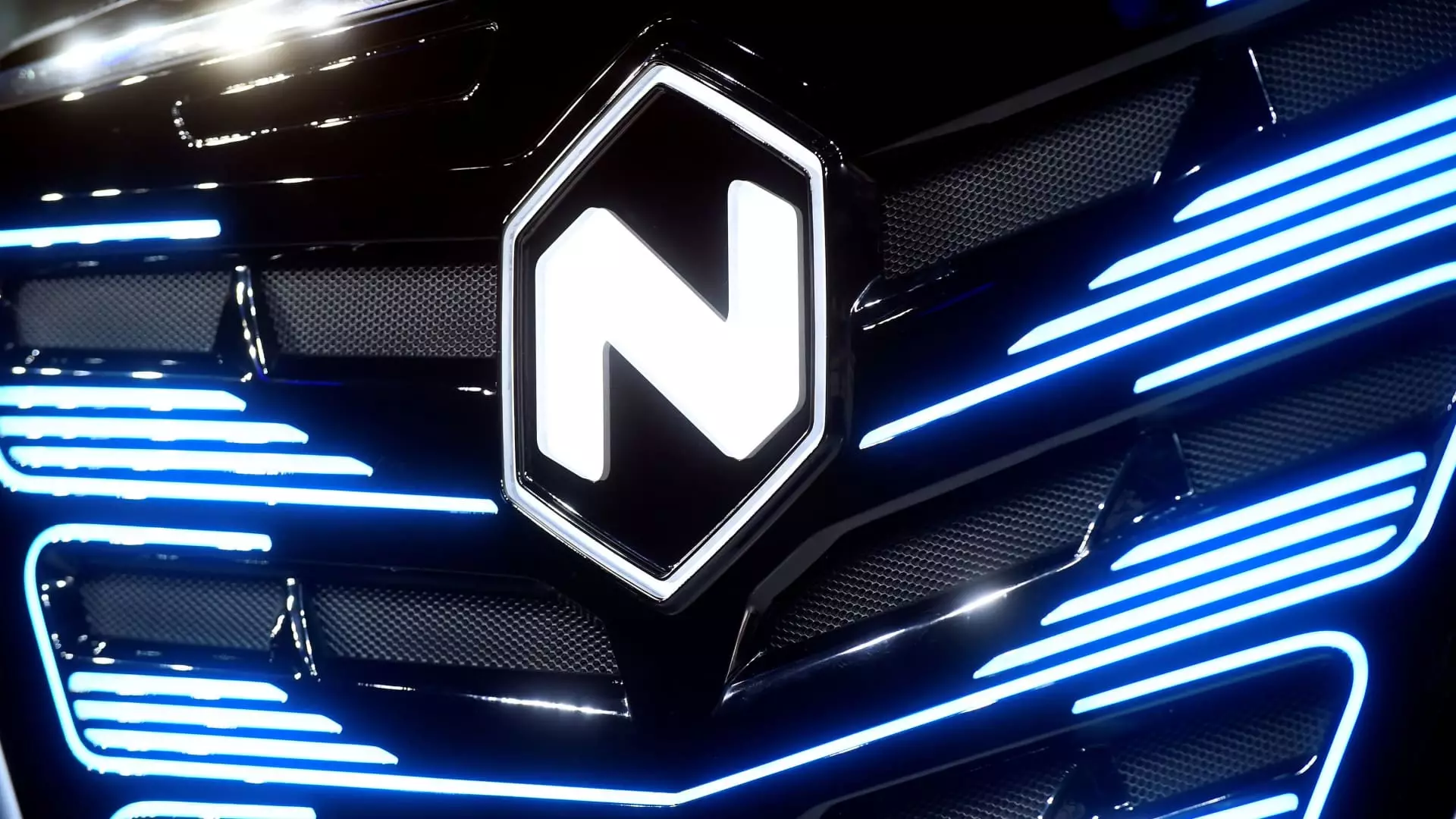Nikola Corp., once a beacon of innovation and promise in the electric vehicle (EV) sector, has reached a critical juncture by filing for Chapter 11 bankruptcy protection. This decision follows the company’s inability to find a suitable buyer or secure necessary funding, prompting an auction and asset sale plan pending court approval. As Nikola ventures into bankruptcy proceedings, it remains with around $47 million in cash intended to sustain its operations during this tumultuous phase. Nikola Corp.’s journey has been shaped by various market forces and internal failures, underscoring the volatile nature of the automotive startup landscape.
Steve Girsky, the CEO of Nikola, expressed the harsh realities faced by the company in a recent announcement. He highlighted that, akin to many players in the electric vehicle market, Nikola has encountered insurmountable challenges stemming from both macroeconomic factors and operational hurdles. Despite the company’s efforts to navigate these obstacles, the Board determined that Chapter 11 bankruptcy represented the most viable pathway forward for both Nikola and its stakeholders. This narrative of decline, marked by unfulfilled expectations, raises questions about the sustainability of many firms within the burgeoning EV sector.
Nikola’s story began with tremendous promise when it reached a staggering valuation of over $30 billion in 2020. Renowned for signing a multibillion-dollar partnership with General Motors, it was hailed as a trailblazer among startups aiming for public investment through reverse mergers. This meteoric rise drew significant attention from analysts and investors alike, placing Nikola at the forefront of the electric vehicle revolution.
However, what followed was a harrowing fall from grace characterized by a series of scandals, notably the conviction of former chairman and CEO Trevor Milton for wire fraud and securities fraud. Milton’s misleading disclosures about Nikola’s operations severely tarnished the company’s reputation and investor trust, highlighting the darker aspects of corporate governance and the importance of transparency in maintaining investor confidence.
This downfall was symbolized by the investigations launched by short-seller Hindenburg Research, which raised alarms about the integrity of Nikola’s reported advancements in zero-emissions technology and its operational capabilities. Such revelations were detrimental, leading to a sharp decline in stock value and ultimately, jeopardizing the company’s financial viability.
Despite the optimistic vision of producing all-electric and hydrogen fuel cell semitrucks, Nikola’s production output has been underwhelming. Since the commencement of its production activities in 2022, the company managed to roll out only about 600 vehicles, with many facing recalls due to substantial defects. These production issues have cost the company millions, further straining its already dwindling resources.
At a recent conference call, Nikola warned investors that it had only enough cash to sustain operations through early 2025, raising concerns about its longevity and operational plans. With the stock hovering under $2 per share since December and a dramatic fall from its all-time high of nearly $80, the company symbolizes a broader cautionary tale for investors drawn to the hype of electric vehicle startups.
The story of Nikola Corp. is a sobering reminder of the pitfalls that can beset automotive startups, particularly in the ever-evolving and competitive realm of electric vehicles. As the company goes through bankruptcy proceedings, it serves as an example for prospective investors and entrepreneurs about the importance of sustainable business practices, transparency, and the need for meticulous operational execution.
While the EV market holds great promise, the experiences of Nikola and similar firms demonstrate that speculative valuations can collapse under the weight of reality. As we reflect on Nikola’s rise and fall, it becomes evident that success in the EV sector requires more than just innovative technology; it necessitates robust financial planning, ethical leadership, and an unbeatable commitment to quality and reliability.

